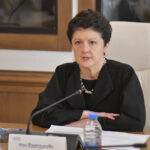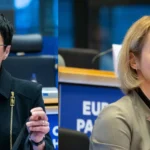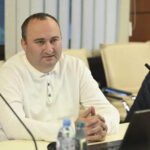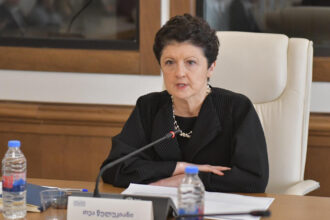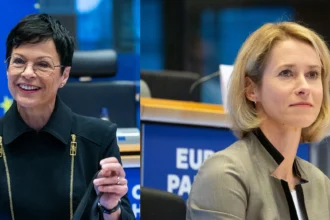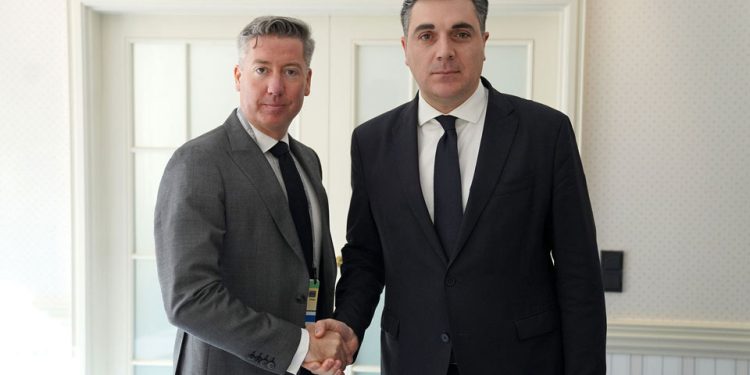Benedikt Francke, Vice-Chairman of the Munich Security Conference and CEO, met with Georgian Minister of External Affairs, Ilia Dachiashvili.
During the meeting Minister Darchiashvili expressed his gratitude for the conference’s high-level organization.
The meeting highlighted the successful, long-standing cooperation between the Munich Conference (Munich Conference) and the Georgian Government. Discussions also focused on future cooperation.
“Minister Darchiashvili stressed the importance of properly presenting Georgia at the Munich Conference, a forum that effectively addresses global political challenges.
The Georgian Foreign Ministry said that “the conversation touched upon the 2024 conference report, with the Georgian part noting that the reports relies on information provided by politically motivated individuals.”
Both parties agreed to work closely together in the future, within the international conference, to disseminate accurate information about Georgia.
The Vice-Chairman expressed an interest in further cooperating with the Georgian Government, including the planning joint events to strengthen the positive image Georgia.
In the latest edition of Munich Security Report 2024 entitled “Lose Lose?,” Bidzina ivanishvili is described as the “pro-Russian oligarch, founder of Georgia’s ruling party” and is held responsible for Georgia‘s recent democratic backsliding, and for its movement away from the European Union “against wishes of the majority Georgian public.”
The report highlights Ivanishvili’s role, as well as Russia’s tactic to “fuel separatism in Abkhazia, South Ossetia, and the Western Balkans” to sow instability.
The report states that the cooperative era in European security is over after the Russian invasion of Ukraine. Countries stuck in the grey area between the Russians and Westerners are forced to choose sides and are in a precarious position. It also notes that Georgia, Moldova and the Western Balkans feel “the precariousness” of being between the camps.
The report states that the EU and NATO have the power to “reduce the grey area” by actively supporting the countries on their path toward membership, while also setting more challenging milestones along the journey.
It calls on EU to concretize notion of staged access and reward reform progress by granting gradual access to its policies and institutions. According to the report, this should include “regular invites of candidate nations as guests to European Council and Council Meetings.” Furthermore, “NATO Allies” should, if necessary, extend bilateral guarantees in the interim period until accession.
The Munich Security Report is an annual summary of global events and their interpretation. It provides insights into key challenges and sets the scene for the Munich conference. This year marks the tenth anniversary of this event.
Related Stories
Georgia’s European Integration Goals Highlighted at Munich Conference
President Zurabishvili says that for us, the EU’s expansion is an existential question
Read More @ georgiatoday.ge
